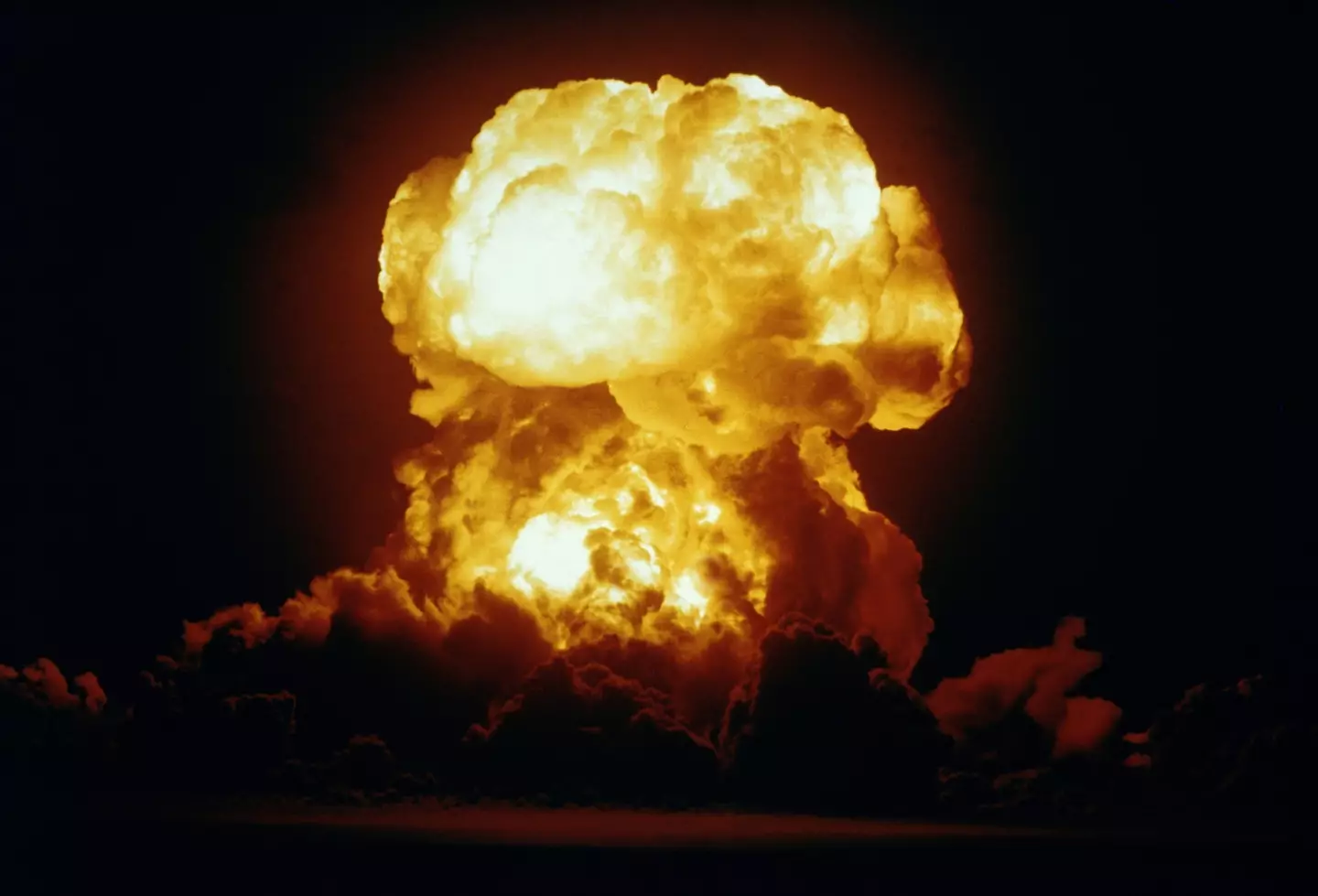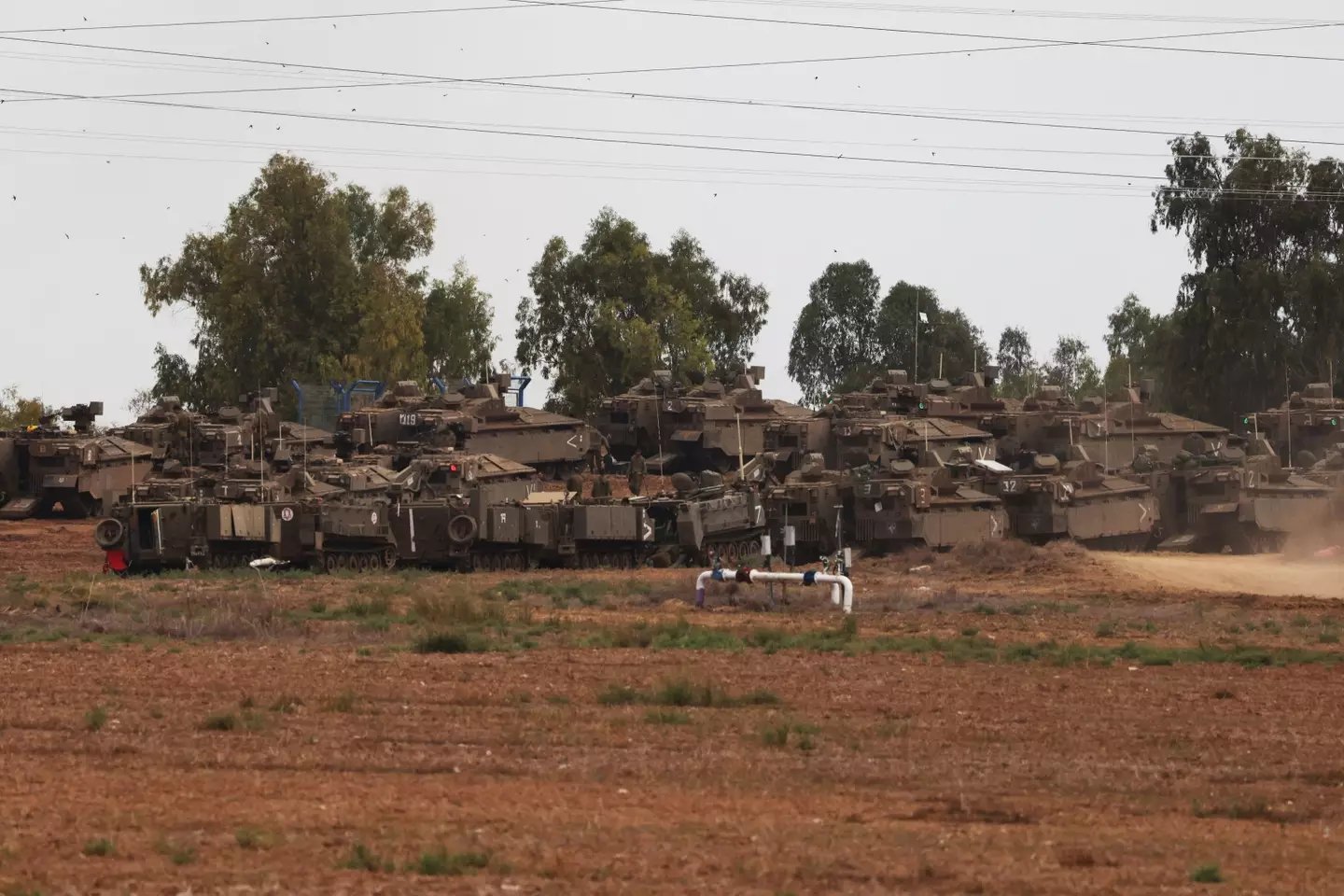.png)
The Doomsday Clock has been updated, with the world remaining 'profoundly unstable' heading into 2024 and beyond.
The clock shows us just how close humanity is to suffering global catastrophe, caused by ourselves.
That could be dictated by nuclear war, climate change and even artificial intelligence (AI).
Advert
Setting the Doomsday Clock every year is the Bulletin of the Atomic Scientists (BAS).
Their purpose is to 'equip the public, policymakers, and scientists with the information needed to reduce man-made threats to our existence'. The closer we are to midnight, the more at risk we are.
Last year, the clock was set at a worrying 90 seconds to midnight following Russia's war on Ukraine. The conflict continues to this day.
BAS met this afternoon (23 January) to give their 2024 update on the clock and how at risk humanity was from a catastrophic event.
Advert
Making the announcement was Rachel Bronson, PhD, president and CEO of BAS.

Setting the groundwork before making the announcement, Dr Bronson told the virtual conference: "Countries with nuclear weapons are engaged in modernisation programmes that threaten to create a new nuclear arms race.
"Earth experienced its hottest year on record and massive floods, fires, and other disasters have taken root.
Advert
"And lack of action on climate change threatens billions of lives and livelihoods.
"Preventing future pandemics has proven useful but it also presents the risk of causing one.
"And recent advances in recent artificial intelligence raise a variety of questions about how to control a technology that could improve or threaten civilisation in countless ways."

She then confirmed that the clock remains stuck at 90 seconds to midnight. But despite staying the same as last year, it means humanity is 'profoundly unstable' while the above risks remain.
Advert
Dr Bronson said: “Make no mistake: resetting the clock at 90 seconds to midnight is not an indication that the world is stable.
"Quite the opposite. It’s urgent for governments and communities around the world to act.
"And BAS remains hopeful—and inspired—in seeing the younger generations leading the charge.”
Alex Glaser, associate professor in Princeton University's Department of Mechanical and Aerospace Engineering, said the ongoing war in Ukraine had 'overshadowed' the announcement given how grave a situation it is.
Advert
He also said the fresh conflict between Israel and Gaza has played a huge part in the 2024 clock time.

Professor Glaser said the Israel-Gaza war could lead to a broader conflict in the region 'involving several nuclear weapon states'.
He said: "It's against this backdrop that we're facing a crisis in nuclear arms control."
BAS says that Russia’s invasion of Ukraine 'has increased the risk of nuclear weapons use, raised the spectre of biological and chemical weapons use, hamstrung the world’s response to climate change, and hampered international efforts to deal with other global concerns'.
Featured Image Credit: Tolimir / JohnnyPowell / GettyTopics: Science, Environment, World News, News, UK News, US News, Weird, Global Warming